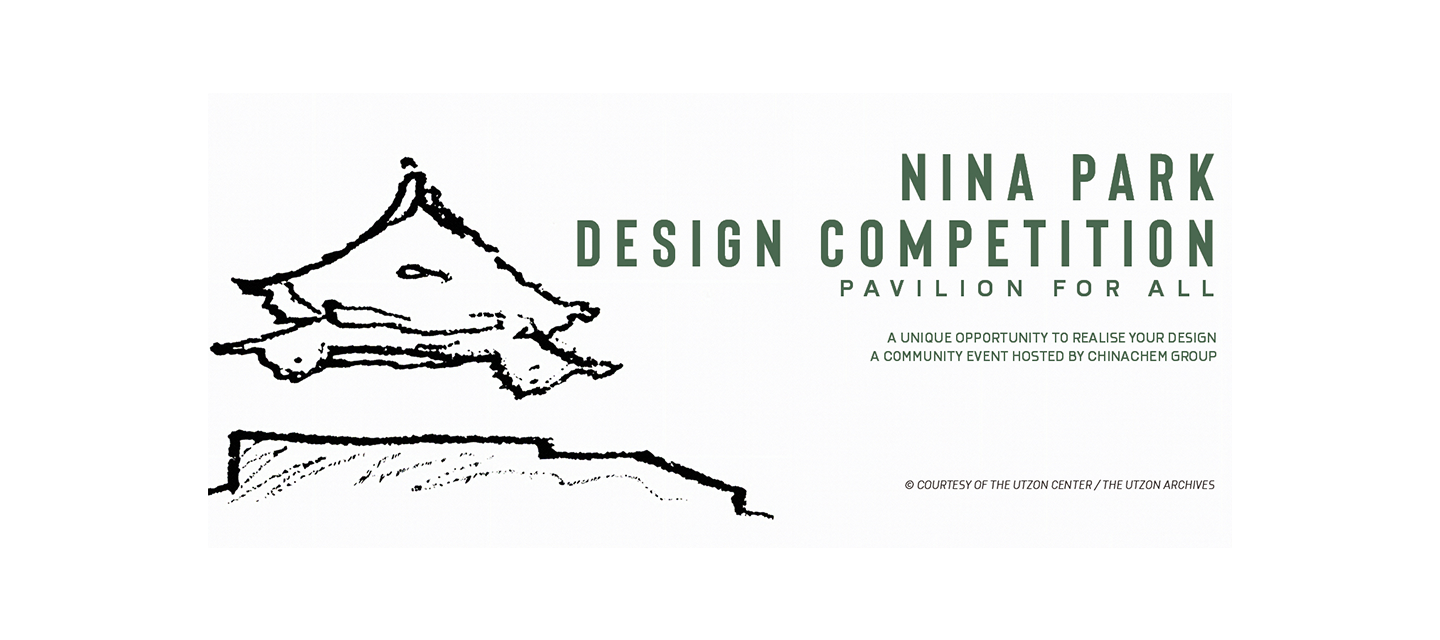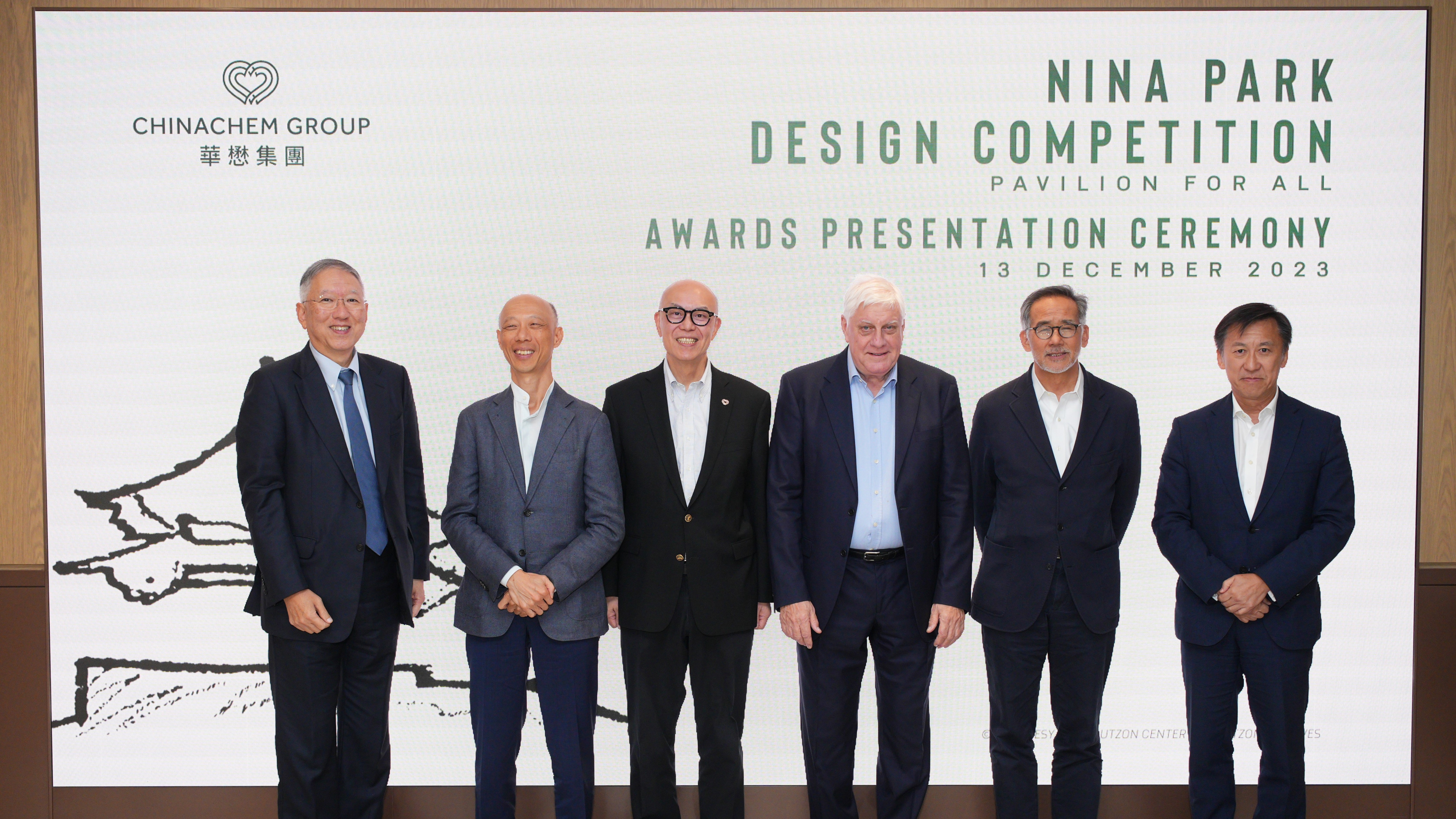Pavilion for All
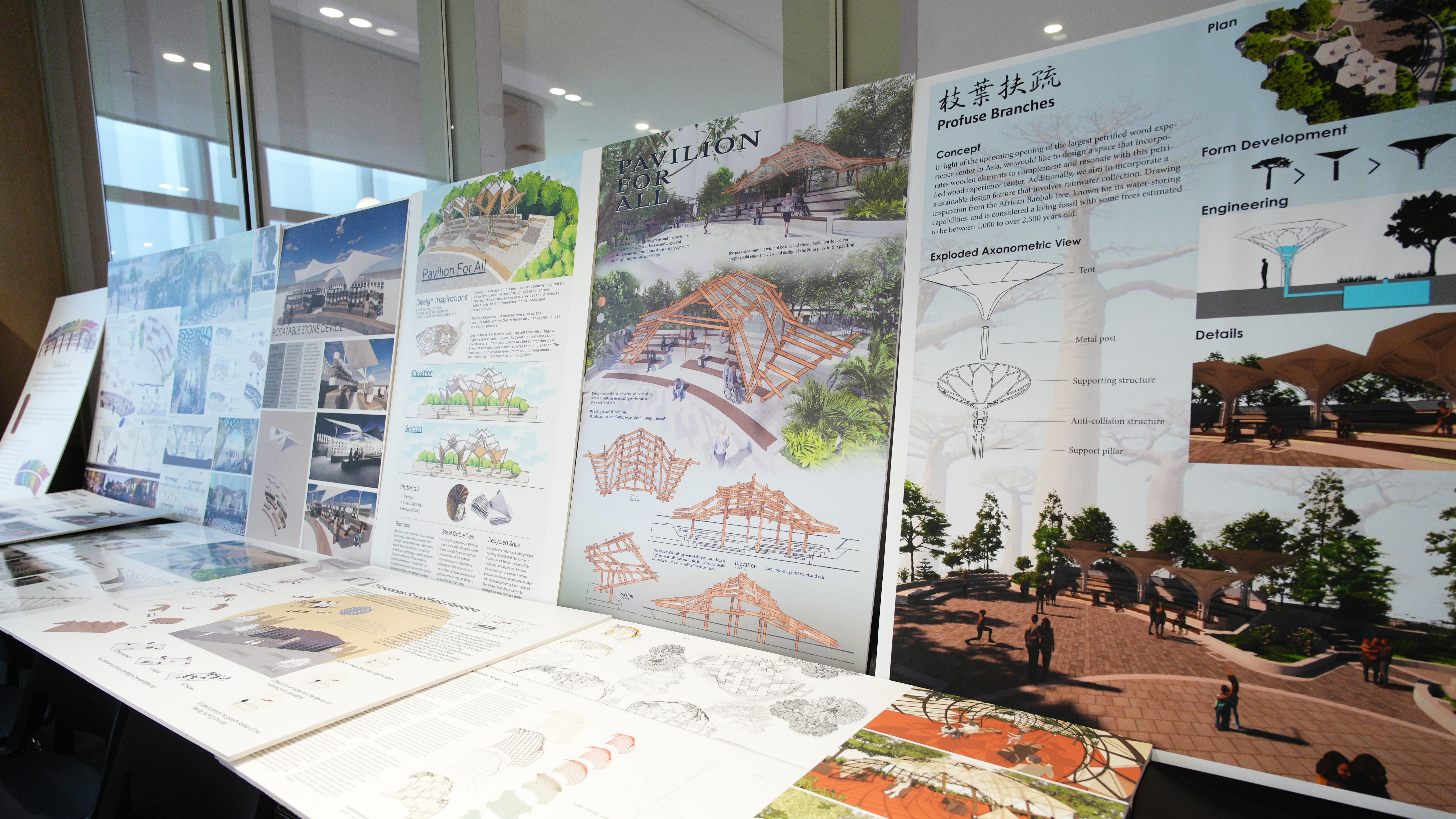
Placemaking for a Better Future
Invitations were extended to full-time students studying design-related disciplines in tertiary institutions in Hong Kong and Macau, resulting in an impressive array of over 90 creative submissions.
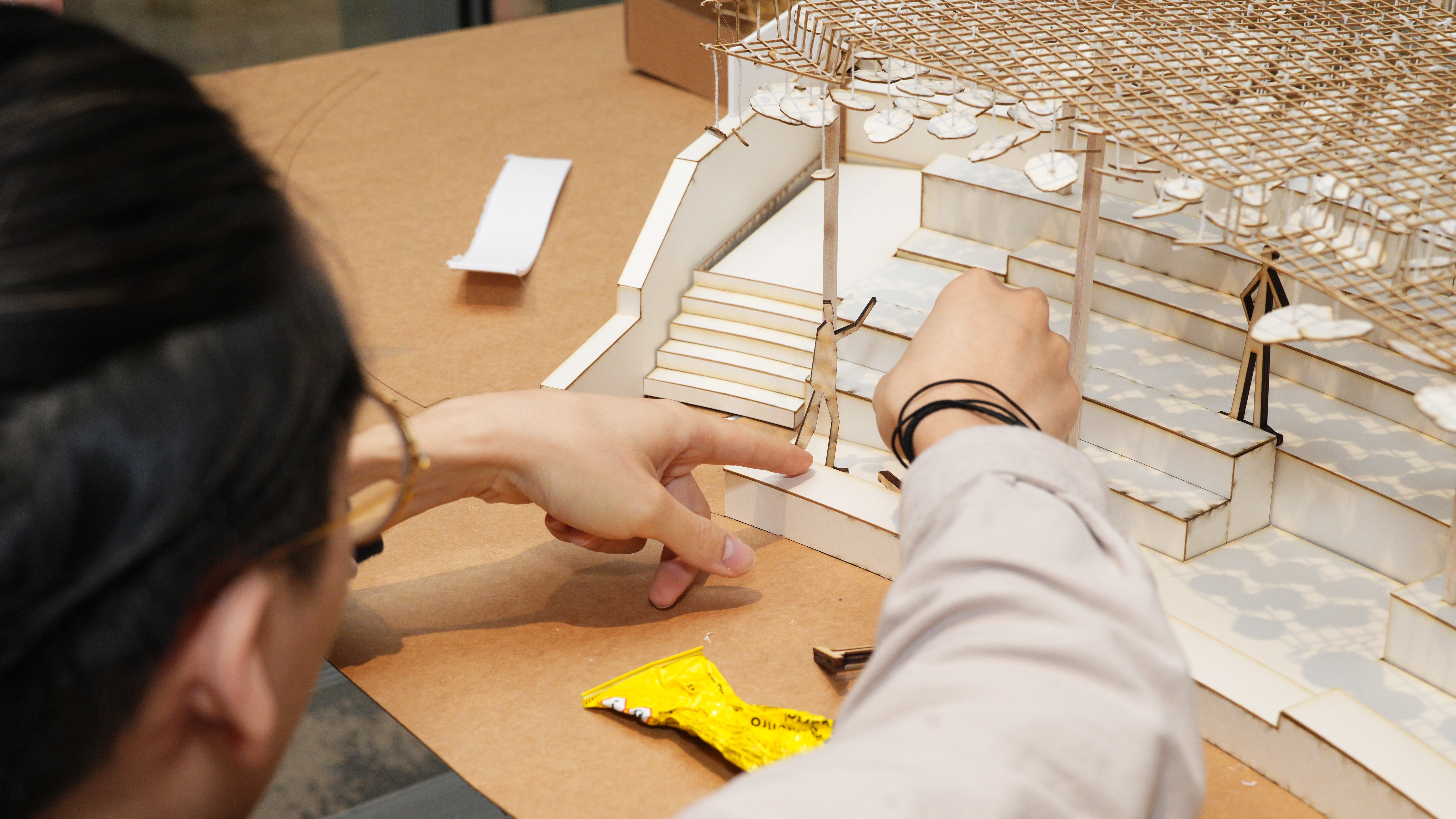
Cultivating Creativity
Ten exceptional teams have been shortlisted, and three winning teams are identified for their remarkable contributions.
Sharing the Boundless Creativity
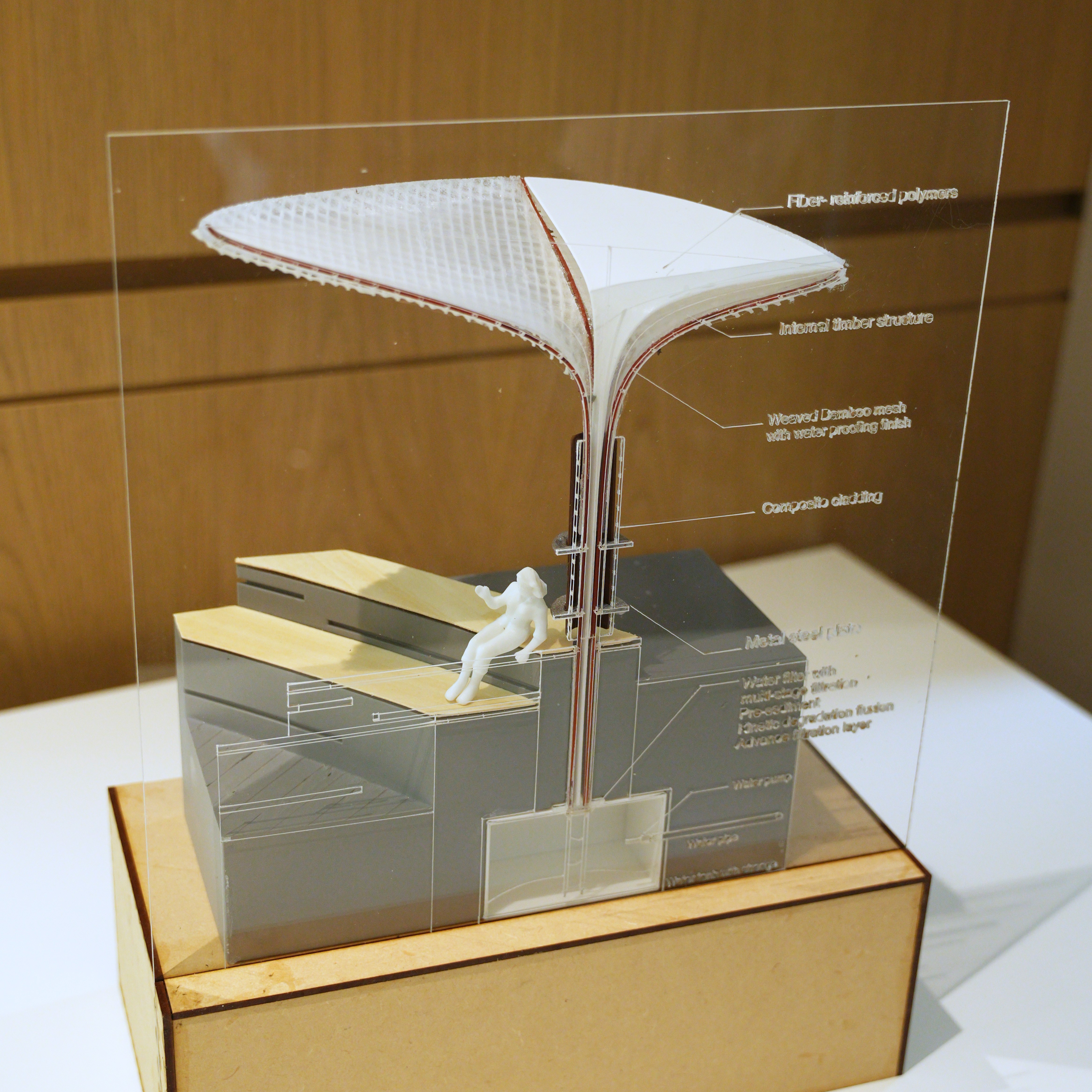
Team name: CJS
Faculty of Architecture, The University of Hong Kong
The design aims to create a tranquil, eco-friendly sanctuary that maximizes functionality while upholding sustainable practices. Through modular construction and carefully selected materials, the design offers a dynamic space with minimal ecological footprint, focusing on both aesthetics and environmental sensitivity. Environmental features such as rainwater harvesting contribute to the park's sustainability, promoting a more self-sustaining ecosystem.
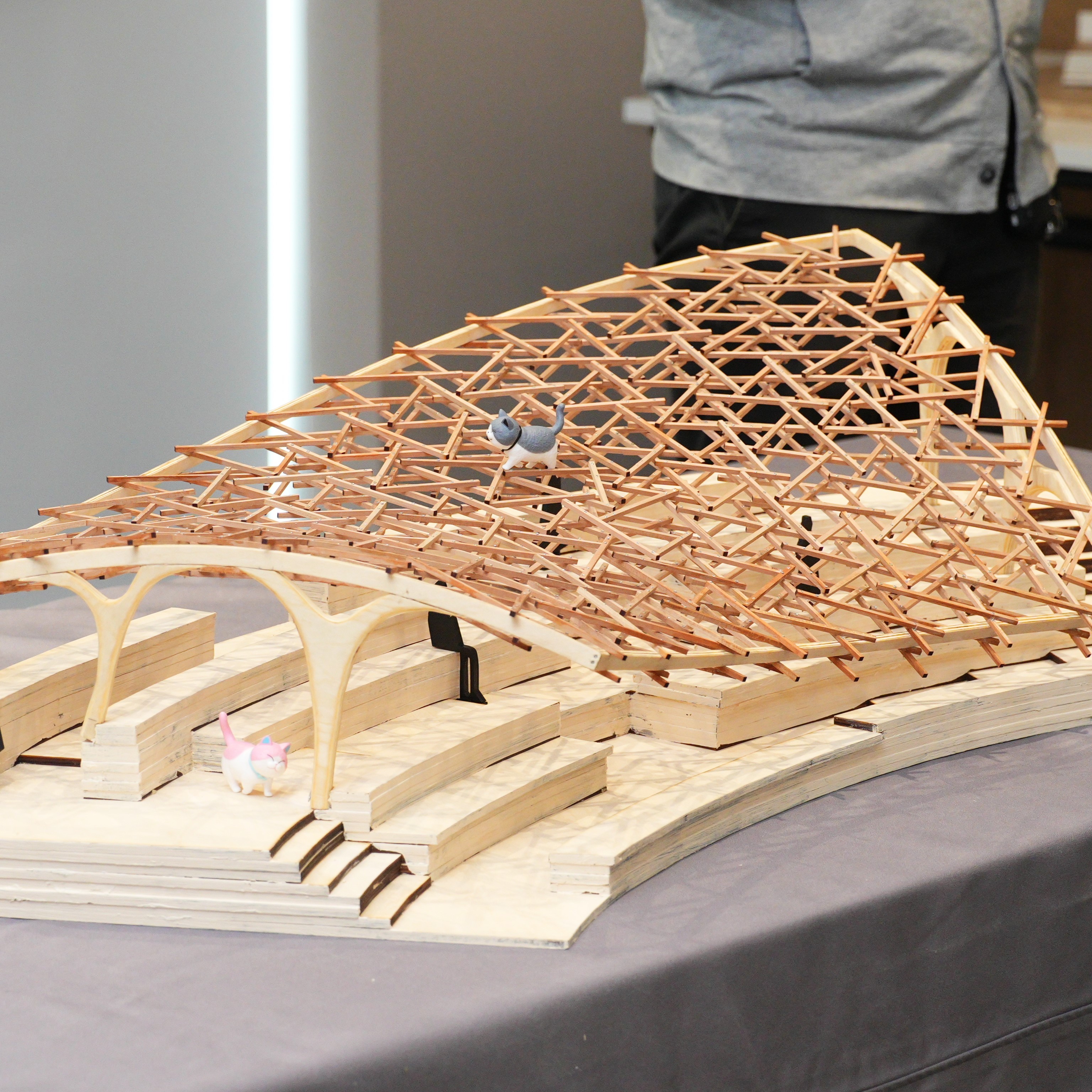
Team name: CHC2223
Faculty of Science and Engineering, Hong Kong Chu Hai College
"Wooden Wings Set Sail" goes beyond being a mere pavilion; it serves as a pivotal space node and a hub for social gatherings, making it the perfect destination to enthrall visitors and offer them a multifaceted experience. With its iconic significance, it also serves as an educational display of architectural construction techniques.
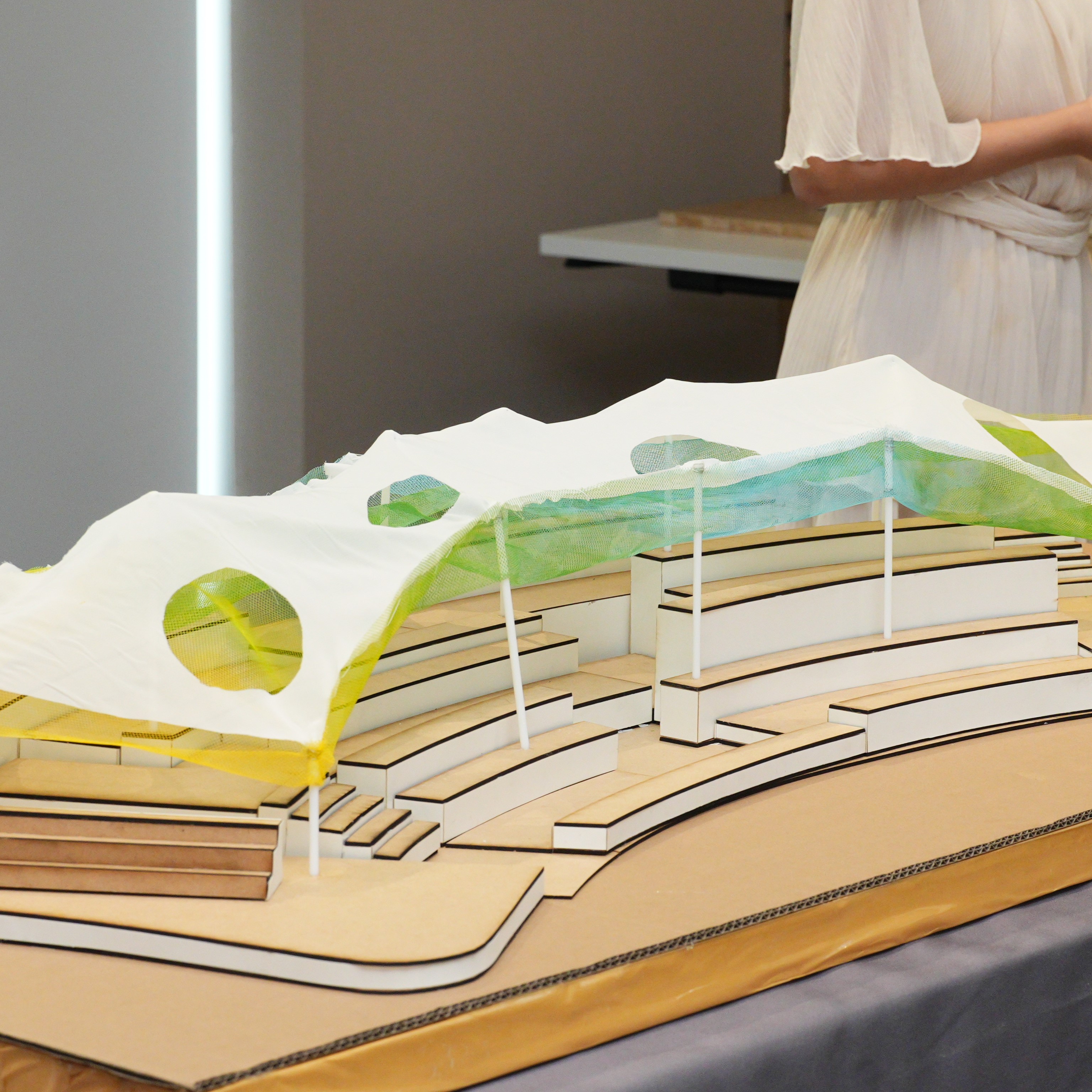
Team name: Mingle
PolyU Hong Kong Community College
The "Net’s Go Climbing! Pavilion" is an energetic and interactive structure designed to engage the local children of Tsuen Wan, who are the primary visitors of Nina Park. This innovative design revolves around a dynamic and colourful net, encouraging children to participate in imaginative play and climb freely.
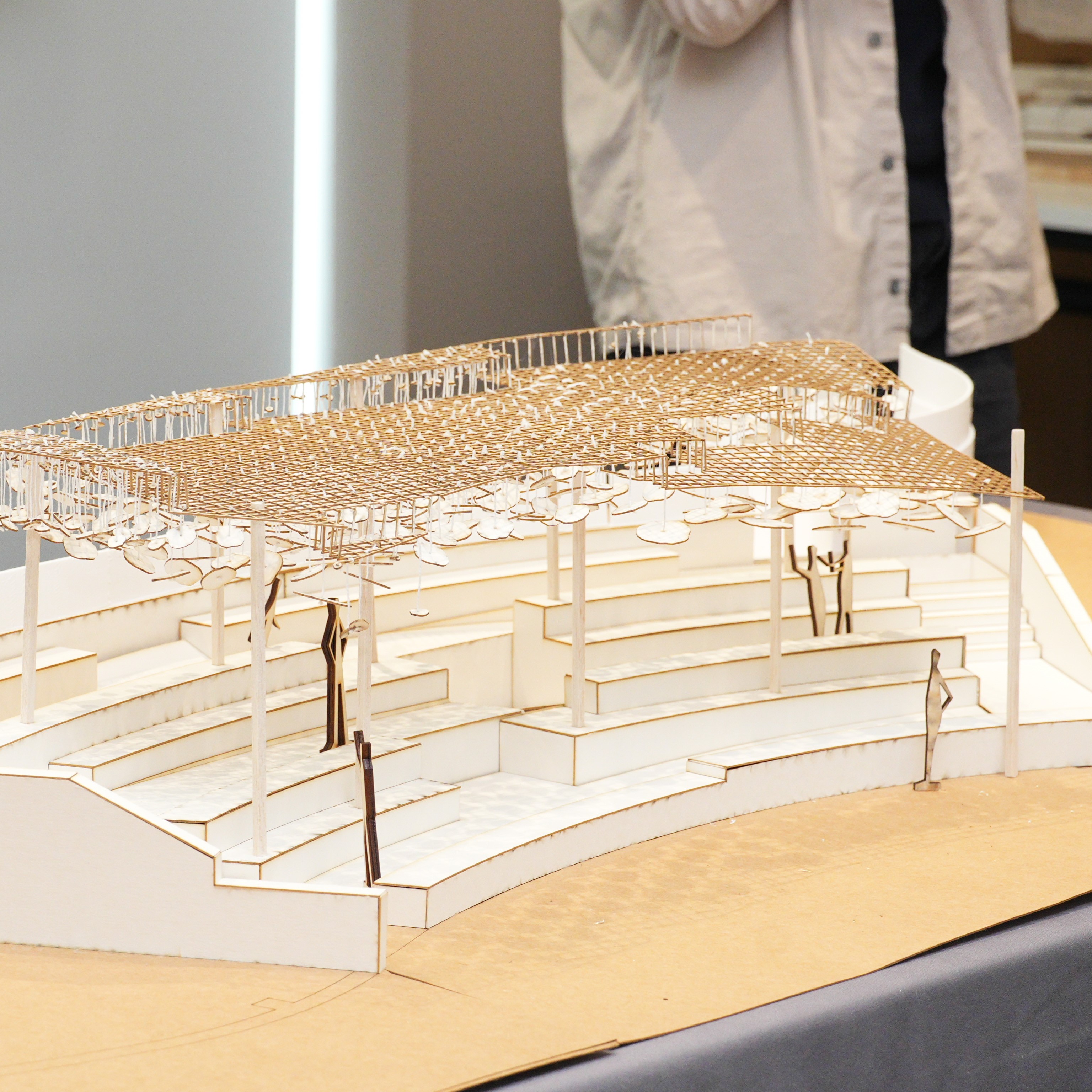
Team name: ALRL
Faculty of Science and Engineering, Hong Kong Chu Hai College
The design draws inspiration from wood fossils, aiming to raise awareness about reusing renewable materials while fostering an appreciation for wood. The pavilion's notable feature includes the gentle swaying of hanging wooden pieces in response to the wind, creating a dynamic play of light and shadow.

Team name: The First Prize
School of Architecture, The Chinese University of Hong Kong
Whether amidst a natural forest or within an urban steel jungle, individuals seek their own vista of the sky while gazing at the clouds. The design aims to offer Nina Park a tranquil space where visitors can unwind and find solace. The pavilion serves not only as protection from the elements but also as a sanctuary for relaxation and contemplation.
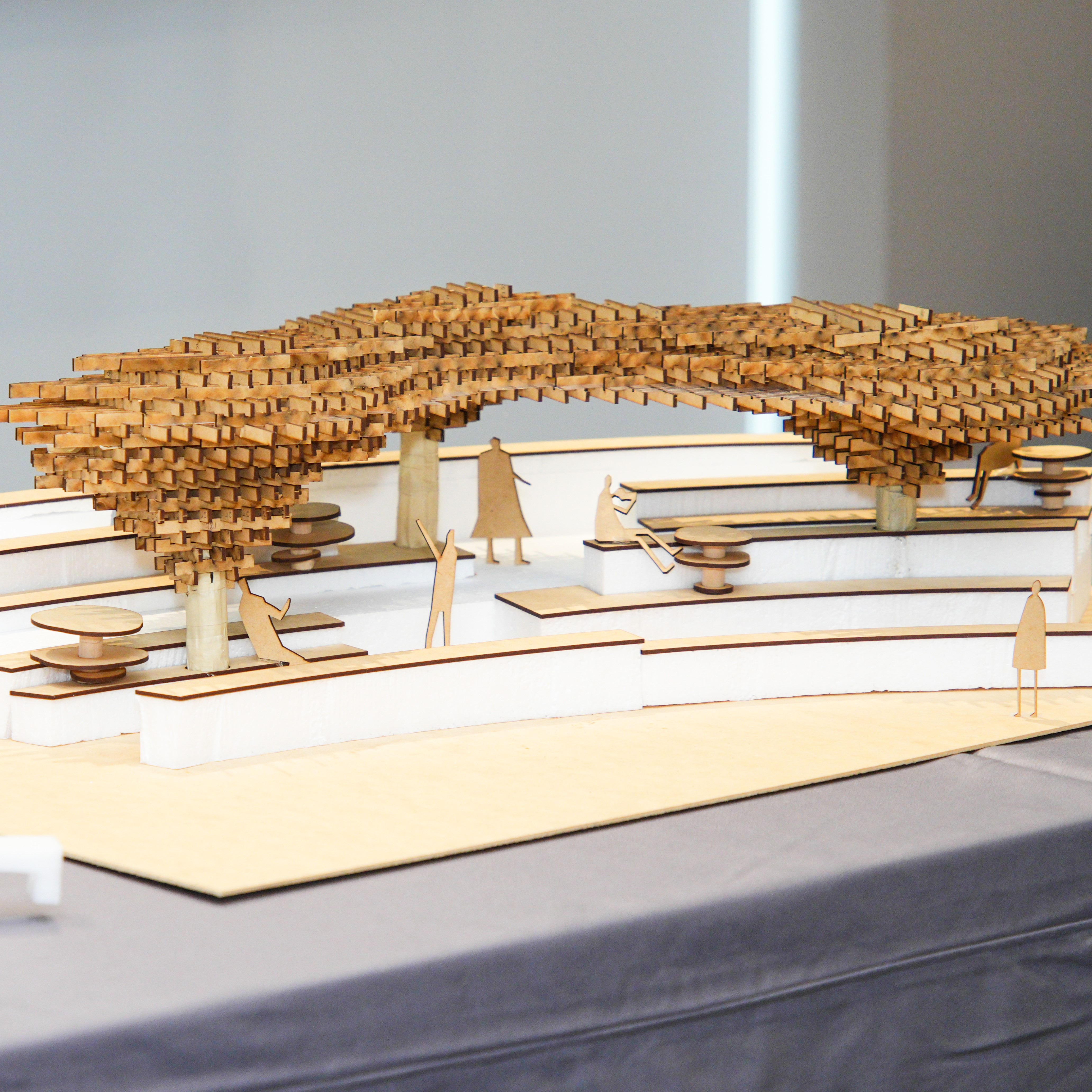
Team name: PudoPudo
Faculty of Architecture, The University of Hong Kong
Wooden fossils represent an alternative form of existence following the demise of a tree. Drawing inspiration from this concept, the team repurposed the felled trees into a new pavilion resembling trees, enabling them to rekindle connections with individuals in a fresh guise. Moreover, via its permeable mesh design, individuals can engage in the sensory encounter of the sedimentary wood gradually being displaced by dissolved solids in the water.
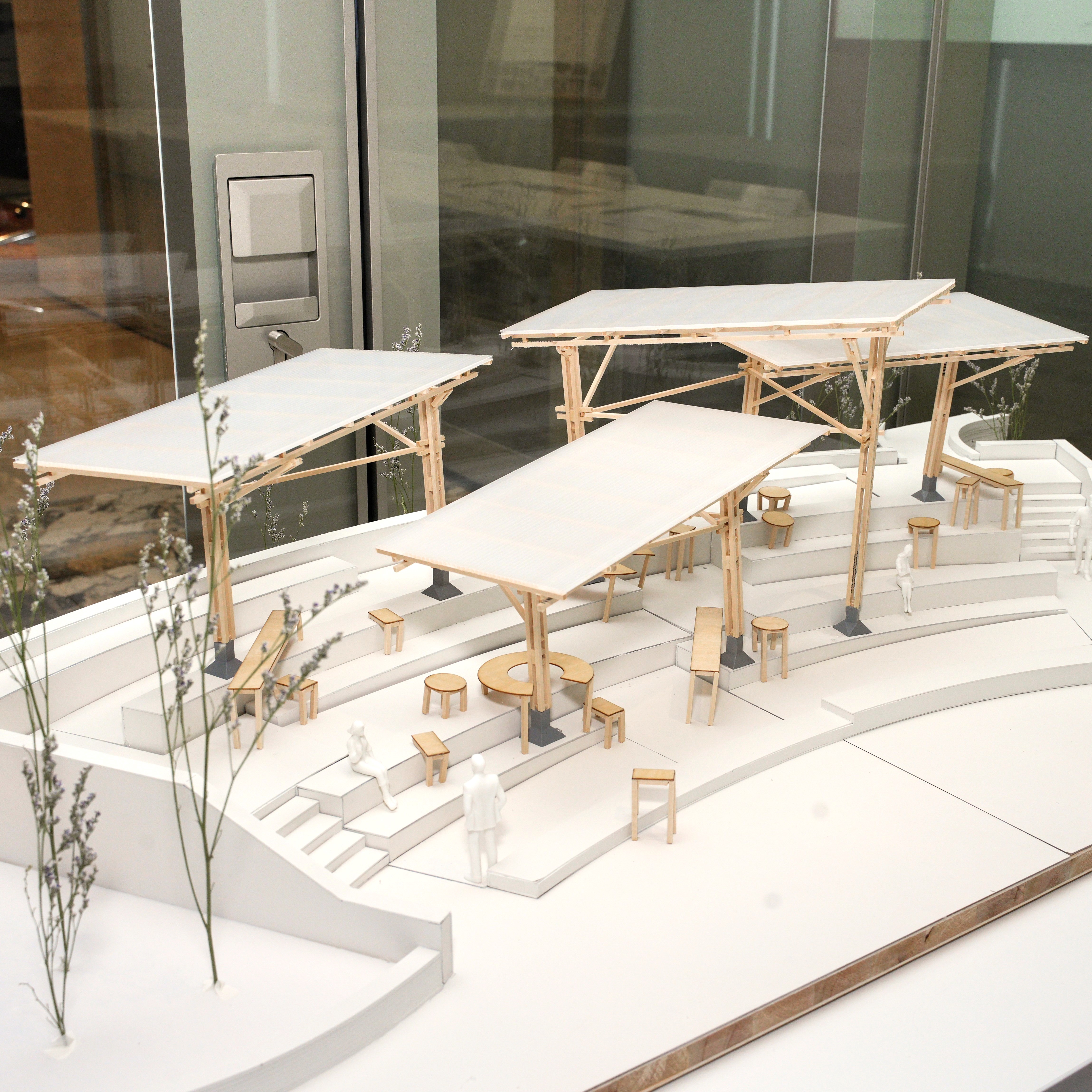
Team name: JAM
Faculty of Architecture, The University of Hong Kong
The pavilion emulates the intricate beauty of trees, symbolizing both isolated and interconnected elements within a unique context. In echoing Nina Park’s aim of exhibiting and educating fossil woods in an urban park, the pavilion resembles the rejuvenating experience of space sitting under natural trees. It provides a tranquil yet vibrant space for relaxation and interaction, fostering a rich experience within the interconnected "trees" of the bustling urban environment.
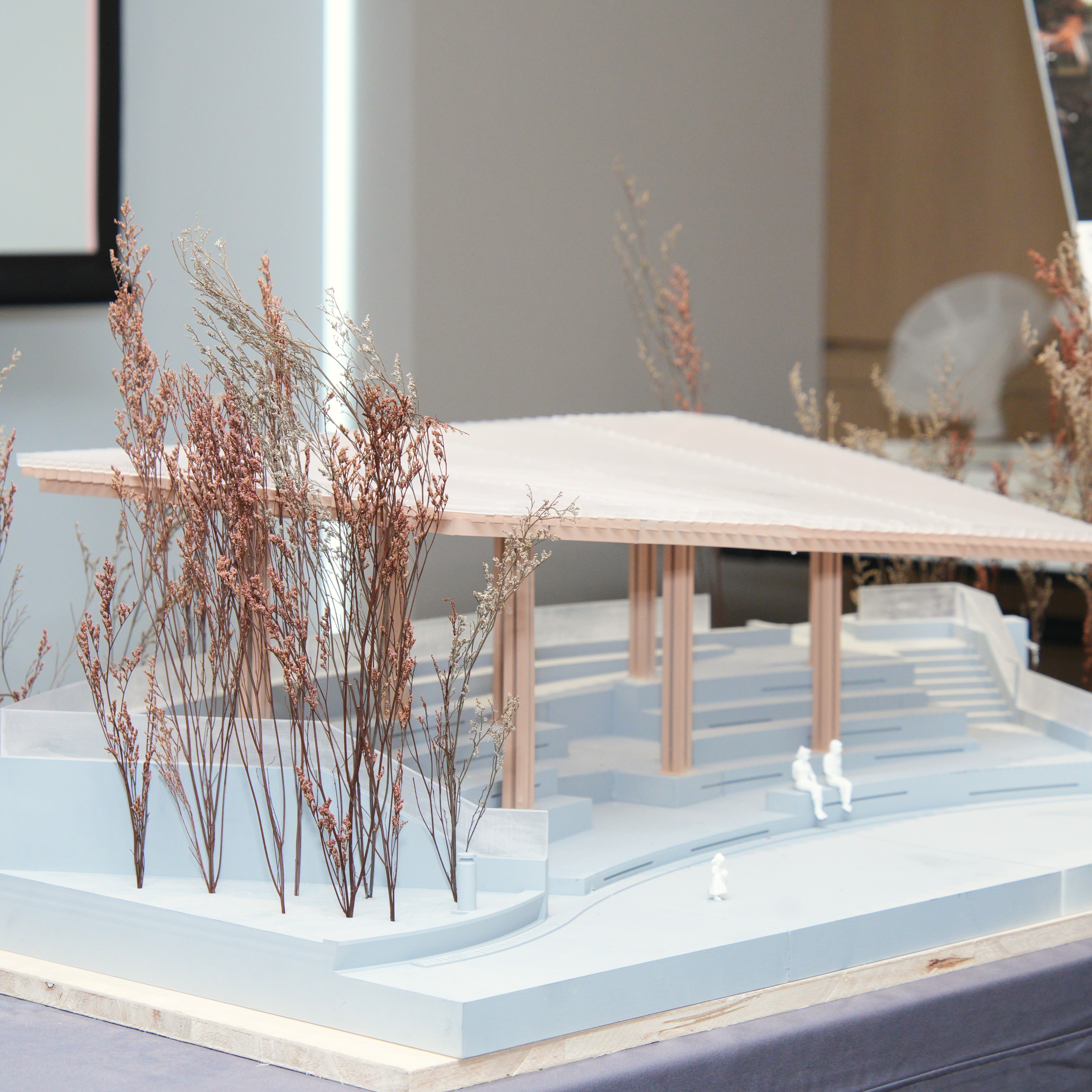
Team name: Studio Yingzao
Faculty of Architecture, The University of Hong Kong
Growth captures the essence of everyday Hong Kong through traditional elements. The Pavilion for All at Nina Park employs recycled timber and acrylics, creating an inclusive space with a pitched roof design that redirects rainwater. This destination offers a warm and inviting atmosphere for families, the elderly, tourists, and the young to gather, learn, and celebrate the city's diversity.
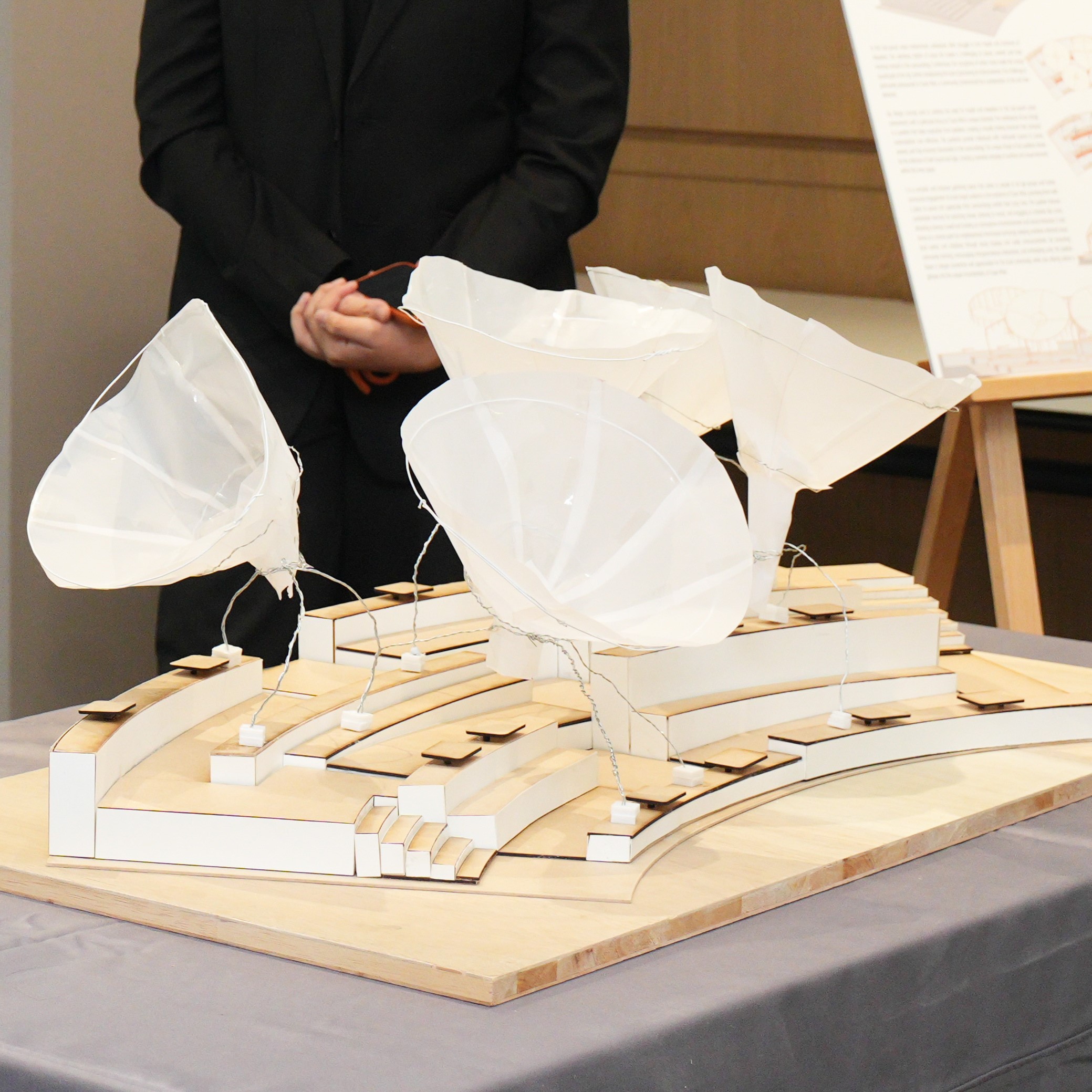
Team name: TEAM
PolyU Hong Kong Community College
This design concept aims to provide respite and relaxation in Tsuen Wan's fast-paced urban environment. A visually striking pavilion, inspired by speakers, serves as the centerpiece. These pavilions offer dedicated spaces for individuals to pause, unwind, and immerse themselves in the surroundings. With their unique shape, the pavilions reflect sound and light, creating a dynamic interplay of auditory and visual elements within the inner space.
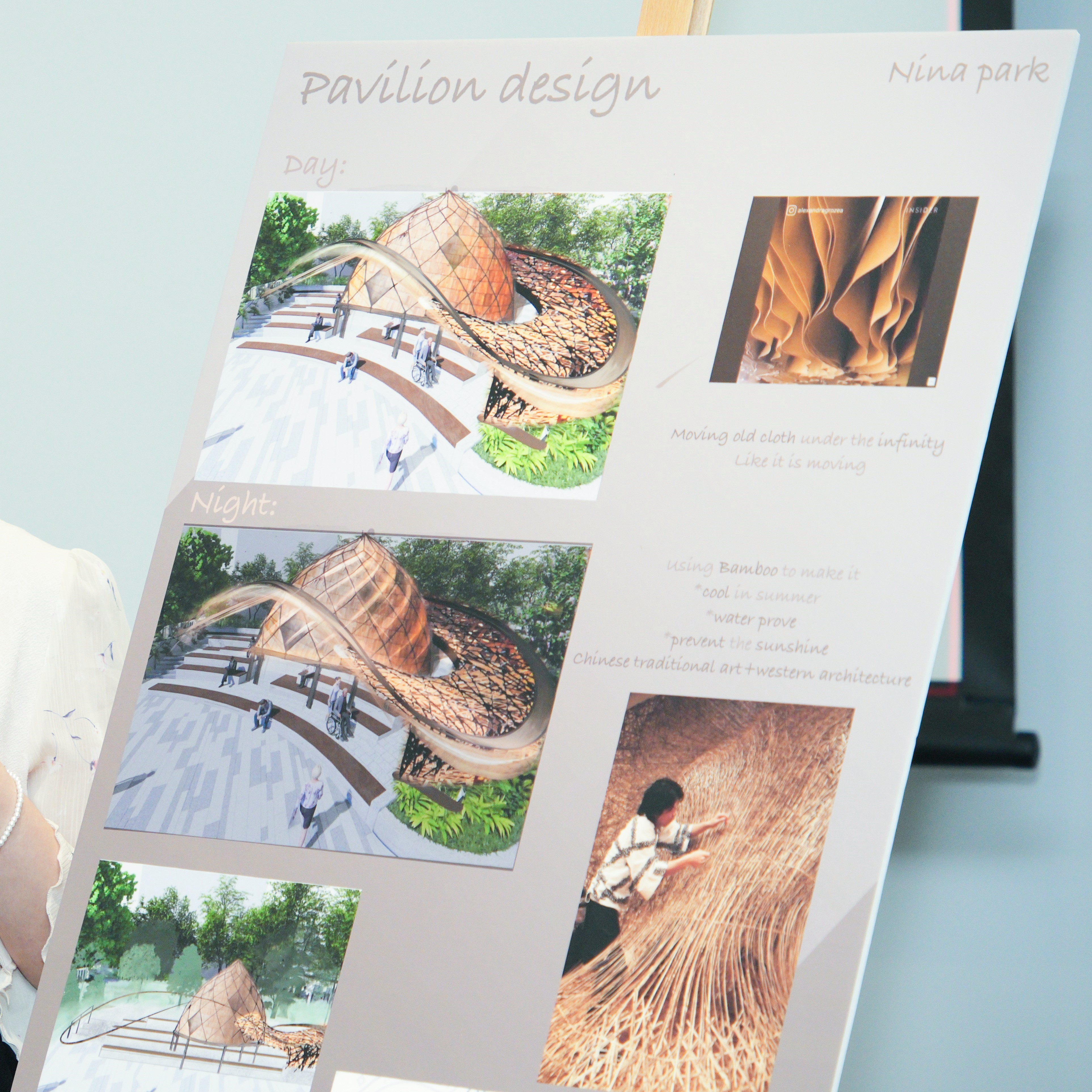
Team name: Well done
Department of Art and Design, The Hang Seng University of Hong Kong
An innovative design crafted from bamboo—a material offering natural cooling in summer, water resistance, and sun protection. This fusion of Chinese traditional art with Western architecture showcases an infinity logo, symbolizing continuity and sustainability.
